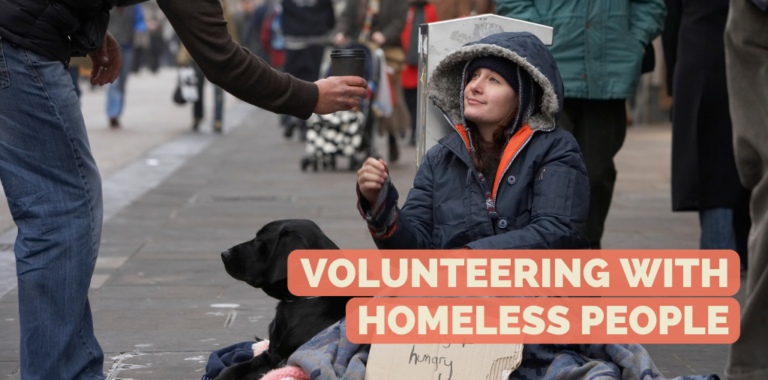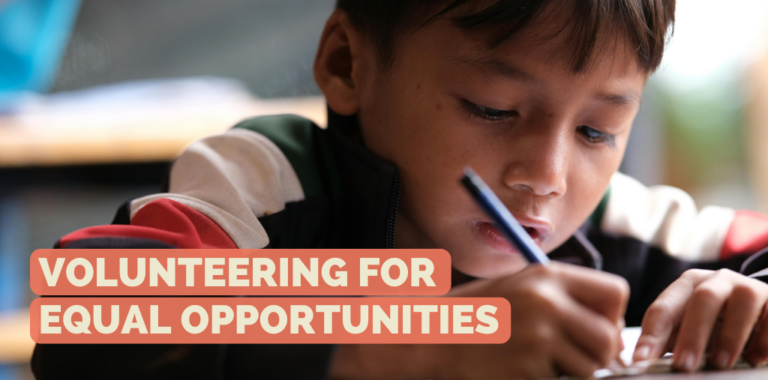Volunteering as an Expat – 4 Musts to be a Volunteer with Impact
by Alia Hack
It took me a while to volunteer in Berlin, in part because I was too busy working in a start-up but mostly because I didn’t speak German and I feared that I would not be a good volunteer: How will I know what to do, especially if I cannot speak German?
Luckily vostel makes it easy to understand which volunteer opportunities require German and which do not. Nevertheless, if you’re still worried about whether or not you’re going to be good, here are some tips to help ensure you will do well!
1. Show up, on time (but if you’re late – or going to be late – do not bail)!
We’ve all been there. It’s time for your volunteer shift and you just don’t want to go. I mean, you do, but you’re tired, or you’re watching Netflix. Ok, maybe you’re still at work (good for you!). In any case, neither your id nor superego are coming out ahead and you’re losing time. You did say you would go, though – remember?
Well, being a good volunteer means showing up (obviously) but more importantly it means not bailing. If you think about it closely, these two things are not the same thing. Think about it this way, not showing up is worse than showing up late or leaving early, and if either of the latter cases do happen, simply say “I’m sorry” and move on.
2. Make eye contact (especially if you don’t speak German) and smile!
I’ve been living away from home (Canada) for almost 3 years now and in learning to speak a foreign language I got in the habit of looking (starring) at people’s mouths (Sounds strange, I know, but I was trying to lip-read). The unsettling part was that I didn’t realize I was doing it until I couldn’t recall the facial expressions of the people with whom I was conversing: Were they uncomfortable or at ease? Noooooo idea.
When it comes to volunteering in a foreign place and in a foreign language you’re going to want to communicate with your co-volunteers and the participants. Makes sense. However, focusing too much on verbal communication can lead you to throw the baby out with the bath water, and no one wants that. A good volunteer will work hard to communicate both non-verbally and verbally. Learn some essential phrases like “Gemüse oder Fleisch” (“vegetable or meat” – can you tell I volunteered at a soup kitchen?), make appropriate eye contact (i.e. don’t stare) and smile. You’ll be surprised at how comforting (and appreciated) the uncomfortable act of conscious eye-contact will make you and others feel. Someone might even draw your portrait.
3. Observe & Ask questions (but not too many)!
Maybe it’s because I was a server for many summers but I’m often confused as to why so many of my co-volunteers are at a loss for what to do. In my mind, there is [almost] always something to do: “Ok, maybe it’s her first time and she’s overwhelmed.”; or “Maybe he’s shy”. I get it. If you find your feet glued to the floor, take off your shoes. Just kidding. Don’t do that.
Take a moment. Look around. Ask for help. Chances are you’ll find something to do, or, at the very least, someone else doing something. Ask them if you can help. No? (awkward). Ok, ask the next person. Get comfortable with asking to help, asking for help, and asking if the task you made-up (because you were an awesome observer and figured out something to do on your own) is relevant. It’s hard to go wrong volunteering, except if you do little to help and stand frozen in a corner.
Oh, and if you’re someone who doesn’t have a problem finding something to do, help out your co-volunteers: “Hey, could you help me with this?” or “Hey, why don’t you take over for me, I’ll do something else for a bit.” Guarantee you’ll be a good volunteer if you keep busy (plus, the time will go by more quickly).
4. Expectations? Throw them far out the window!
Years ago, I learned to readjust my notion of “having expectations” to “not having expectations” when trying something new, thanks to an intercultural effectiveness training course I took before volunteering at an HIV/AIDs hospice in Botswana.
I remember thinking… “WHAT!?, have zero expectations? How will I function? Is that even possible… or safe?” but once I wrapped my head around the idea, it’s helped to make my experiences a lot more enjoyable. Here’s the idea in a nutshell, as Jeff Probst would say: “Expect the unexpected”.
It’s fine to have expectations but you’ve got to be flexible. In order to do so, I recommend not having any expectations because chances are, you’ll still have some. Get it? Being a good volunteer means being flexible and going with the flow. If you can do that, the likelihood of a positive experience (and doing a good job) is pretty damn high.

Alia is a 28-year-old, from the Canadian Maritimes who finds her BSc in Social Psych much more interesting than her MSc in Business Strategy. She makes decisions quickly, in the interest of adventure, and highly recommends the chocolate-chunk sea salt cookies and book collection at Shakespeare and Sons café, in Friedrichshain.







This is a very good article and Im very happy to read it. I identified myself a lot . As an expat many new things are starting, a new way to see and live experiences. This was a good guide for volunteering in Berlin 🙂
Thank you for the nice comment! We’re glad you like it 🙂 If you’re looking for suitable volunteering opportunities, you should check out https://vostel.de/en